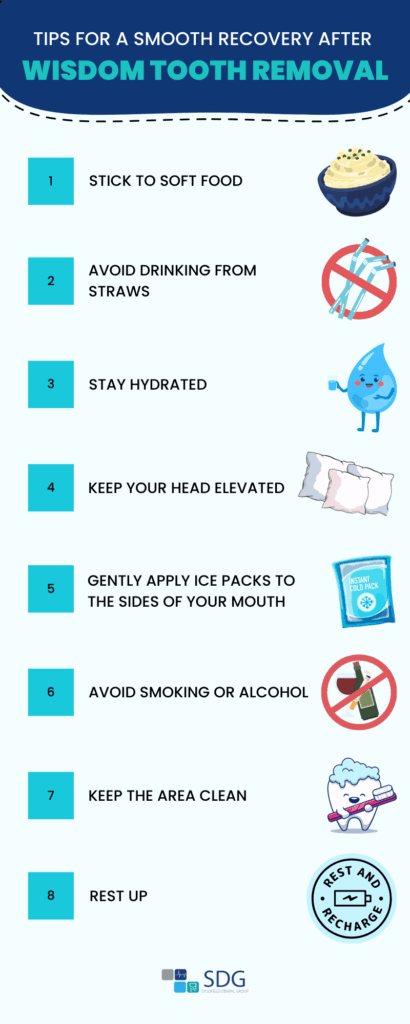How Long Does Wisdom Teeth Swelling Last?

Wisdom teeth are the last set of molars to appear and for many, they bring more trouble than good. While some people barely notice them coming through, others experience soreness, puffiness, and uncomfortable swelling in their gums and cheeks. If you have recently had your wisdom teeth removed or if they are starting to erupt, you may be wondering how long the swelling will last and what you can do to ease it. Understanding what is normal and when to seek help can make the process far less stressful. Follow along as SDG Dental guides you through.
Why Do Wisdom Teeth Cause Swelling?
Swelling is your body’s natural defence mechanism, so whenever tissues are irritated or injured, the body increases blood flow to the area, triggering inflammation to help with healing.
When the teeth are erupting, the gums can become sore and inflamed as the teeth push their way through when there is not enough space in the jaw to accommodate them. In some cases, the teeth become impacted, which means they are trapped under the gum or pressing against the neighbouring tooth. This pressure can lead to significant swelling and tenderness.
Infections are another common reason for swelling. Since wisdom teeth are located right at the back of the mouth, it is easy for food debris and bacteria to become trapped around them, especially if they are only partially erupted. This can lead to an infection called pericoronitis, which often causes the gums to swell and may even result in pain spreading to the jaw or ear.
For those who have had their wisdom teeth removed, swelling is a predictable part of the healing process as the body is responding to the trauma of surgery, and puffiness in the cheeks is a normal stage of recovery.
How Long Does The Swelling Last?
Depending on whether it’s surgery that caused it or it’s linked to eruption, the period of swelling may differ. When wisdom teeth are emerging naturally, swelling usually flares up in short bursts and often lasts a few days to a week at a time. Once eruption slows down then the gums tend to settle down and with it the swelling will too. Yet for some, this cycle of swelling can come and go until the tooth has fully come through or is removed altogether.
After wisdom teeth removal, the timeline of swelling is more predictable. In the first 24 hours, you may notice only minimal puffiness and swelling typically peaks between the second and third day. By the end of the first week, most patients notice a significant improvement, and by 7 to 10 days, the majority of the swelling has resolved. In more complex cases, such as when several teeth are removed or if the extraction was difficult, mild swelling can linger for up to two weeks.
What Can You Do to Reduce Swelling?
- Cold compresses: Apply an ice pack to your cheek for 15–20 minutes at a time during the first 48 hours. This helps minimise swelling and numbs the area for pain relief.
- Warm compresses: Switch to warm compresses after 48 hours to encourage blood flow and speed up healing.
- Keep your head elevated: Try to sleep with your head propped up on extra pillows since lying flat can make swelling worse.
- Saltwater rinses: Gently rinsing with warm salt water after meals helps keep the mouth clean and reduces bacteria.
- Stay hydrated: Drinking water supports healing and helps reduce inflammation.
- Follow your dentist’s instructions: Take any prescribed medications, including pain relief or antibiotics, exactly as directed.

If your swelling seems to be getting worse rather than better, or if you notice signs of infection, it is always best to check in with your dentist. At SDG Dental in Wantirna, we’re here to make wisdom teeth care as smooth and stress-free as possible. Whether you’re dealing with swollen gums, painful eruptions, or recovery after removal, our friendly team can guide you through every step with personalised care and modern treatment. Contact us now!



